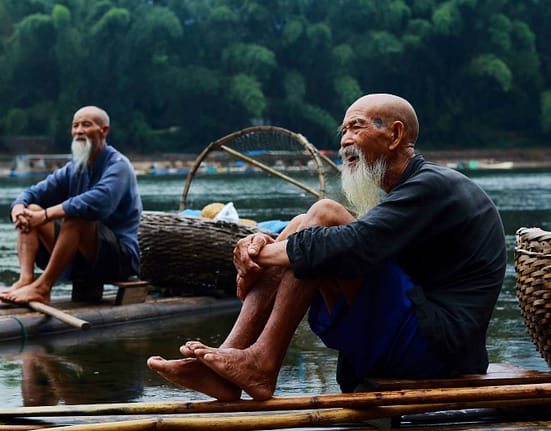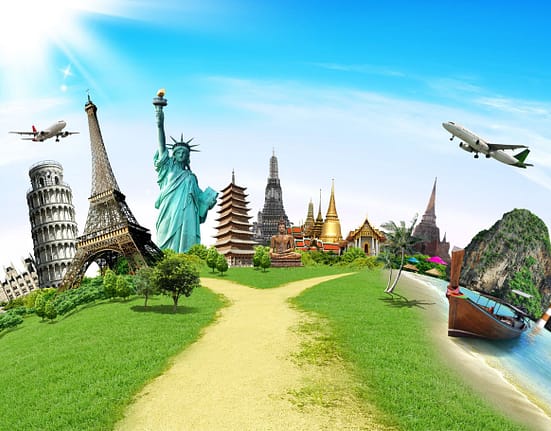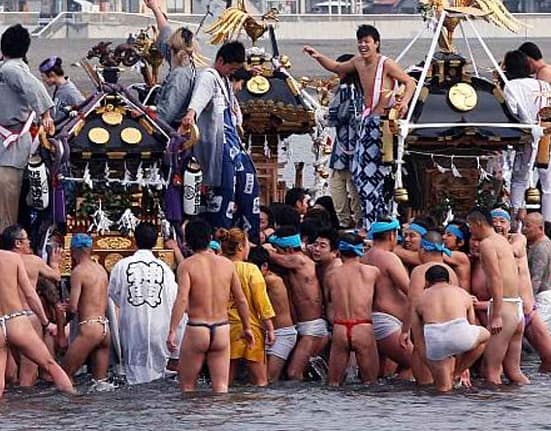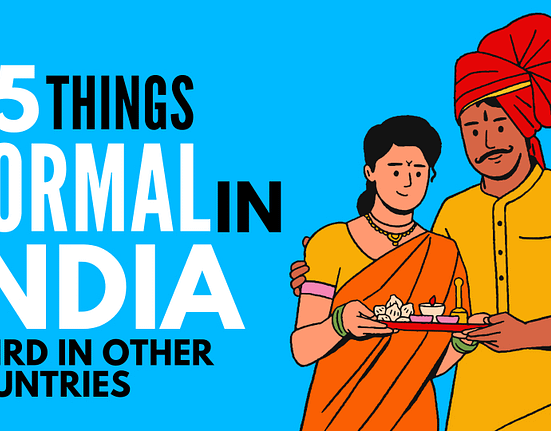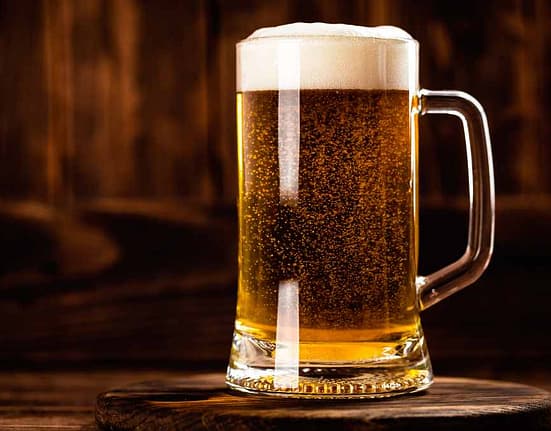Are you looking for some crazy facts about North Korea? In this blog post we’ve compiled the most interesting facts about North Korea that will surprise you!
Once you complete reading this blog post, you will know some unique facts about North Korea and weird facts about North Korea that can rarely be found online!
North Korea is one of the most enigmatic and tightly controlled nations on Earth. Imagine a country where despite being one of the poorest in the world, it boasts one of the largest militaries, pouring vast resources into illicit nuclear weapons and ballistic missile programs. It’s a surreal contradiction that raises eyebrows and sparks curiosity.
From bizarre state policies to the chilling realities faced by its citizens, prepare for an eye-opening journey into 33 Crazy Facts About North Korea!
Let’s dive in!
1: How Handling North Korean Publications Can Land You in Trouble.

In North Korea, the Pyongyang Times is not just a source of news; it represents the regime’s strict control over information. When you encounter this English-language newspaper, there’s a shocking rule: you must never hold it by the leaders’ pictures. This is not a mere suggestion; it’s a serious offense to deface or crease these papers, which can lead to severe punishment.
This restriction extends beyond newspapers to magazines and any public documents printed with the leaders’ images. If you find yourself with a damaged copy, throwing it away is out of the question. Instead, you must leave it on a table for authorized personnel to dispose of properly. This bizarre regulation illustrates the lengths to which the regime goes to maintain its image and suppress dissent, instilling fear in the hearts of its citizens.
2: The Surprising Truth About Cars in North Korea.

Here’s a fascinating fact about cars in North Korea! There are actually far more vehicles on the road than one might expect, but they are strictly categorized by their number plates. The color and numbers reveal a lot: blue plates signify company vehicles, black denotes military cars, and green is reserved for government officials.
Owning a personal vehicle here is incredibly rare and usually indicates that someone has achieved something noteworthy, like winning an Olympic medal or receiving a special gift from the regime. It’s shocking to think that something as ordinary as a car can symbolize status and success in such a controlled society!
3: Three-Generation Punishment Rule

One of the most shocking aspects of North Korean law is the three-generation punishment rule. If an individual is convicted of a crime, not only are they punished, but their entire family—up to three generations—can be sent to prison camps. This draconian measure serves as a terrifying deterrent against dissent and ensures that families remain loyal to the regime.
The oppressive nature of this law creates an environment of fear, where even minor infractions can have devastating consequences for entire families. Of course, this is one of the craziest North Korea facts!
4: Regulated Hairstyles

In North Korea, even something as mundane as a hairstyle is subject to strict regulation. There are only 28 government-approved hairstyles: 10 for men and 18 for women. This bizarre law reflects the regime’s desire for uniformity and control over its citizens’ appearances.
Individuals sporting unconventional hairstyles risk arrest, showcasing the extent to which the government monitors personal expression.
5: Human Waste as Fertilizer
In a country struggling with agricultural productivity, North Korea has resorted to using human waste as fertilizer. Citizens are required to collect and provide their own waste to support farming efforts.
This practice is rooted in necessity due to chronic food shortages, but it also highlights the extreme measures the government takes to ensure food production in a resource-scarce environment. This is really one of the fun facts about North Korea, isn’t it?
6: Luxurious Lives of Leaders

While the average citizen struggles with poverty and food shortages, North Korean leaders live extraordinarily lavish lives.
For instance, Kim Jong il reportedly spent over $300 million annually on luxury goods, while his successor, Kim Jong Un, supposedly splurged more than $600 million in his first year in power alone. This stark contrast between the elite and the general populace underscores the regime’s prioritization of luxury over basic human needs.
7: Portraits of Leaders

In North Korea, it’s not just a matter of respect; it’s a requirement to display portraits of the supreme leaders—Kim Il Sung and Kim Jong Il—in both public and private spaces. Citizens must also wear lapel badges featuring their images at all times.
Failure to display these portraits properly can lead to severe penalties, illustrating the cult of personality that surrounds the Kim family.
8: Mandatory Conscription

Service to the state is paramount in North Korea, which explains its mandatory conscription policy. This is a stark contrast to the Republic of Korea, where military service is also required but often viewed differently. Both men and women are required to serve in the military; men typically serve for at least 10 years, starting at age 17, while women serve until age 23.
This policy not only bolsters military numbers but also instills a sense of loyalty and discipline among citizens from an early age.
9: Wedding Traditions

Here is an insane fact about North korea. North Korean weddings are heavily monitored events. Couples must visit the statues of Kim Il-sung and Kim Jong-il immediately after their marriage ceremony, reflecting the regime’s pervasive influence even in personal matters.
Uniquely, there are no honeymoons allowed; couples return to work the very next day, emphasizing the state’s expectation that citizens prioritize work over personal lives.
Imagine a married couple feeling a mix of excitement and disappointment. They just had their wedding but can’t enjoy a honeymoon. Instead, they have to return to work right away, making them feel like their personal joy is less important than their jobs.
10: Birth Practices
Childbirth in North Korea often occurs at home without medical professionals, reflecting both cultural traditions and limited healthcare access. After a baby is born, families celebrate with unique customs, such as sticking dates and flowers in a hen’s jaws or red chilies in a rooster’s beak.
These practices are steeped in local folklore and highlight the community’s connection to agriculture and symbolism.
11: Innovative Energy Solutions

Due to chronic electricity shortages, North Korea has developed some innovative energy solutions. The country has constructed wind-powered buildings and employs wood-burning cars as alternative energy sources. These adaptations reflect the nation’s resilience in facing international sanctions and energy limitations while trying to meet its citizens’ essential needs.
12: Propaganda and Media Control
Media in North Korea is strictly controlled by the government, with all content designed to glorify the Kim family and promote state ideology. Citizens watch state-produced television shows that often feature fictional narratives depicting the greatness of their leaders.
This manipulation of information ensures that the populace remains indoctrinated and compliant.
13: Marijuana is Legal and Smoked Regularly

Surprisingly, marijuana is legal in North Korea and is commonly smoked among the populace. It is not classified as a drug, nor is it illegal; instead, it grows freely on roadsides throughout the country.
This unusual cultural attitude toward marijuana highlights a stark contrast with many other nations where it is heavily regulated or prohibited.
14: Juche Calendar

North Korea operates on its own calendar known as the Juche calendar, which begins with the birth year of Kim Il-sung (1912). This calendar reflects the regime’s ideology—Juche being a philosophy of self-reliance—and further emphasizes the centrality of Kim Il-sung’s legacy in North Korean society.
15: Traffic Cops

Being a traffic cop in North Korea is considered a prestigious job—especially for women. Selection often depends on height and attractiveness, reflecting societal standards that intertwine physical appearance with career opportunities. The traffic police play a crucial role in maintaining order in Pyongyang’s streets while also serving as symbols of authority.
Read Also: >> 50 Interesting Facts About China
16: Prohibition on Blue Jeans

This is one of North Korea’s fun facts.
Blue jeans are banned in North Korea because they are seen as a symbol of U.S. capitalism. Instead, citizens are expected to wear traditional clothing or outfits that align with state-approved norms. This ban exemplifies how deeply political ideology penetrates into everyday life even down to clothing choices.
17: No Christmas Celebrations

In stark contrast to many cultures worldwide, Christmas is not celebrated in North Korea. Instead, December 24th marks the birthday of Kim Jong-il’s mother, while December 27th is designated as National Constitution Day.
This replacement of traditional holidays with state-sanctioned events showcases how deeply embedded the regime’s ideology is within cultural practices.
18: USS Pueblo

The USS Pueblo, captured by North Korea in 1968, remains an interesting piece of history—it is the only commissioned U.S. ship still held captive today. The ship has been turned into a tourist attraction in Pyongyang, serving as a propaganda tool that reinforces narratives about U.S.-North Korea relations.
19: Music Censorship

North Korea’s approach to music censorship is extreme; only songs promoting political ideals are permitted, while genres like K-Pop are strictly banned. Possession or distribution of K-Pop music can result in severe punishments, showcasing how tightly controlled cultural expressions are under Kim’s regime.
20: State-Owned TV Channels
The country operates four state-owned TV channels, one dedicated solely to sports programming. All these channels broadcast content approved by the North Korean government, ensuring that all news and entertainment align with state propaganda objectives.
21: Kidnapping of a South Korean Director

In a bizarre chapter of North Korean history, agents kidnapped South Korean director Shin Sang-ok and his wife in 1978. For eight years, they were forced to produce films for the regime, under the strict control of the Korean government, before they managed to escape.
This incident underscores North Korea’s willingness to engage in international criminality when it suits its agenda. This is really a fun fact about North Korea.
Was there really no one skilled or talented enough to make a movie in North Korea at that time?
22: Computer Ownership Restrictions

In North Korea, owning a computer requires government permission, with internet access limited to just 28 approved websites available on a heavily censored intranet called “Kwangmyong.” This restriction prevents citizens from accessing global networks or alternative sources of information, maintaining tight control over public knowledge.
23: Naming Restrictions

Here is an odd fact about North Korea. Citizens face strict naming restrictions, preventing them from naming their children after supreme leaders or altering names associated with previous leaderships.
If someone already shares a name with a leader, they must change it—a reflection of how deeply entrenched the cult of personality is within society.
24: Flowers Named After Leaders

In keeping with the cult of personality surrounding its leaders, North Korea boasts flowers named after them: Kimilsungia (an orchid hybrid) for Kim Il-sung and Kimjongilia (a begonia hybrid) for Kim Jong-il.
These flowers symbolize loyalty and reverence towards the leaders while also serving as propaganda tools. This is really one of the craziest North korean facts.
25: No Taxes in North Korea

Interestingly, North Korea claims to be one of the few countries where residents do not pay taxes domestically; it labels itself as the world’s only tax-free country.
This is one of the shocking facts about North Korea, right? Because, despite being one of the poorest countries in the world, their economy operates without taxes.
While this claim raises eyebrows internationally, it reflects how state control allows for alternative economic structures compared to capitalist societies.
26: No Mobiles for Tourists

Visitors to North Korea face strict restrictions regarding mobile phone usage; tourists are not allowed to use their phones during their stay—if they do so without permission, significant consequences can ensue. This ban serves to prevent unauthorized communication with the outside world and maintain state secrecy. Really weird facts about North Korea, right?
27: Koreans vs. North Koreans
Interestingly, people living in North Korea do not refer to themselves as “North Koreans,” a distinction that highlights the differences in identity between those in North and South Korea, shaped in part by the Korean War.
Instead, they simply call themselves Koreans, emphasizing their identity tied more closely to their nation than its division from South Korea—an intriguing perspective shaped by decades of propaganda.
28: Pyongyang’s Metro as a Nuclear Bunker

Here is an amazing fact about North Korea. The metro system in Pyongyang is constructed deep underground, serving dual purposes: as public transportation and as a potential nuclear bunker in case of an attack. This design reflects both preparedness for conflict and the need for efficient urban transit within a tightly controlled environment. Really amazing, right?
29: Limited Internet Access
Only a select few thousand elites within North Korea have access to the internet; most citizens can only utilize Kwangmyong—a heavily censored intranet that limits what they can see and share online. This restriction makes it difficult for average citizens to engage with global information or communicate freely. It makes shocking facts about North korea!
30: Visa Restrictions for Travelers
Travelers wishing to visit North Korea face stringent visa restrictions; only citizens from Malaysia and Singapore can enter without prior approval from the government. All other visitors must apply through state-approved tour agencies to ensure complete government oversight during their stay.
31: Controlled Radio Stations

Radio broadcasts in North Korea are strictly governed by the government; listening to unauthorized news could lead to imprisonment or worse consequences for citizens caught accessing external media sources. The state uses radio outlets as tools for propaganda dissemination while stifling dissenting voices.
32: Seven-Day Workweeks
Here are other crazy facts about North korea. Unlike many countries that enjoy five- or six-day workweeks, North Koreans are expected to work seven days a week—with Sundays designated as “voluntary” workdays despite this being compulsory under social expectations. The absence of leisure time emphasizes dedication to state duties above personal well-being.
33: Unique Basketball Rules

Want other unique facts about North korea?
Here’s—North Korea has implemented unique rules for basketball games: slam dunks are worth three points, while goals scored during the last three minutes hold extra weight in scoring values. These modifications showcase how sports can be tailored to fit national identity and pride within an isolated setting.
These 33 crazy facts about North Korea provide insight into a nation that operates under unique ideologies and extreme control measures rarely seen elsewhere in the world today. From its oppressive laws and cultural practices to its quirky customs and beliefs, life in North Korea is marked by both absurdity and resilience amid immense challenges.
Thanks for reading!
